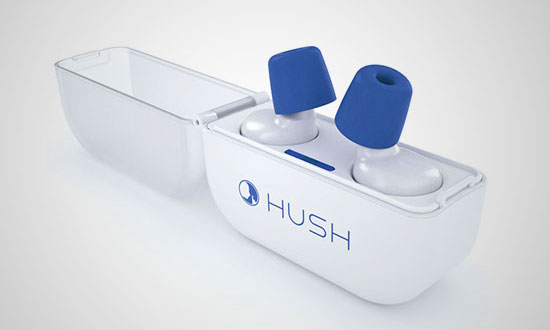Smartphones appear to be losing their luster, and the king of smartphones — Apple — clearly is not having a good year. Suddenly, I’m hearing that there is an upswing in flip phones, making this feel a bit like a Game of Thrones episode, when a believed-dead king returns to seize the throne by surprise. (We are still talking small numbers, so you Apple folks don’t have to jump out of windows yet.)
Clearly, the market is looking for the next big thing. There was a lot to love about the flip phone, and phones have been a rather fluid environment for a time. Palm and RIM (now BlackBerry) took the market from Motorola, and Apple took the market from Palm and BlackBerry, only to face a largely successful attack by Google. Microsoft, long thought to be invincible, turned out not to be.
I’ll share some thoughts about what it would take to bring the flip phone back as a power and then close with my product of the week: some earplugs that could save your marriage.
Flipping the Market
Apple flipped the market most dramatically when it largely copied a design from LG — called the “LG Prada” — that fell into a class of smartphones not selling well. Apple showcased how to fix that. The issue was that the Prada, and devices like it, were expensive and relatively hard to use. There were features packaged as apps, and the model in play was similar to Microsoft’s now failed initiative, putting a limited PC in your pocket.
The reason that designs like Palm’s and RIM’s (BlackBerry) worked better was that they simply were more useful. Their keyboards made them vastly better for email than screen phones, and folks who had used Palm Pilots and RIM BlackBerry pagers migrated to them in droves.
However, what everyone missed was that phones were more personal devices than they were work machines, and Apple created a device that was better looking and more fun to use, while still doing most everything a Palm or RIM phone did.
In addition, anticipating that its entire iPod base was likely to migrate to such a phone, Apple cannibalized its iPod line, turning the vast majority of iPod users into iPhone users. That prevented what could have been a catastrophic market loss if RIM or Palm had picked up music and other media first.
The funny thing is, Palm actually had designed an iPhone-like product, but executive management (read the now-branded-idiot CEO) concluded there was no market for an iPhone-like product; people bought those things for business only.
Now, with Apple pivoting to more of a business focus in an increasingly desperate effort to expand its market, there is a growing opportunity to flip the market back again.
Flip Phone Advantages
The flip phone had a number of advantages over a typical smartphone. It was smaller and more portable. It was far easier to balance on your shoulder when talking hands free. It was more robust (the screen was naturally protected by the “flip” feature).
You measured battery life in days, not hours; its keyboard let you dial faster; and it typically cost around a fourth of what a smartphone cost, so you didn’t have as big a problem if you lost or broke it.
Flip Phone Disadvantages
On the other hand, the flip phone wasn’t a smartphone, so in terms of doing most of the things you now use a phone for — other than talking on it — it largely sucked. Texting was ugly, browsing (if it even worked) was painful, and there were no real apps (no common platform).
It had a proprietary power plug (you were screwed if you forgot or lost your charger), and the old Star Trek-like look wasn’t really that trendy by the time it died.
Building an iPhone Killer
Here is how I think you could challenge the iPhone. First, you’d take a page out of Steve Jobs’ book and build it so it did a few things really well — including playing music and tethering. In fact, I think tethering is the key.
You see, we’ve grown phones into phablets, but most of us also have tablets with larger screens. If you had the phone do mostly just the core communications transport but left the Web browsing, app running, video playing stuff to the tablet or laptop, you’d have a solution that would allow you to be more connected, more of the time, with all of your devices.
You’d have devices optimized for what you were doing rather than trying to balance between a too-big phone with crappy battery life and a too-small tablet or crippled PC-like device.
The two or three products then would work more symbiotically, without as much overlap, and you could do things like device alerting, so that when any one of the paired devices got out of range you’d know it. That would make it less likely for you to leave one of them behind.
Again, the key would be not only to make tethering far easier than it is now, but also to ensure that the switch-off between the phone and tablet/PC was also natural and easy.
In a use case, you’d have the phone on your shoulder talking and the tablet in front of you for video conferencing or sharing. (You also could use a headset, leaving the phone in your pocket or purse.)
Even if the tablet/PC ran out of power, you’d still be able to make and receive calls and do limited Web work. You’d want a creative charging solution so you weren’t up to your armpits in wall warts, making wireless charging interesting if not necessary.
You’d need to up the design, and maybe think about whether you could turn this into some kind of unique wearable. In the end, the “flip” part isn’t critical. If you could come up with something that would even work better hands-free and use the current crop of digital assistants better (Cortana, Siri, Alexa), you’d likely have a hit.
In fact, it might not be a bad idea to see if you could make Amazon’s Echo into a phone/mobile wireless router.
Wrapping Up
I’m convinced that the market is looking aggressively for what comes after the iPhone, and that this opportunity is waiting for the next Apple to make that gamble. No one says it couldn’t actually be Apple that does this — but it is doubtful, given how badly it screwed up the Apple Watch. (Calling it “Apple Watch” is a big clue to its problems.)
In the end, it will take a combination of the functionality of a tablet or PC, the mobility and connectivity of a current-generation phone, and the voice capability of Echo to make this happen. That means everyone from Apple to Microsoft could be in the hunt, but it might take a new company thinking entirely out of the box with sufficient funding to create the next big thing.
I snore. Now I’m not convinced it is that bad, but my wife thinks I sound like the sound you’d hear just before the world ends. In short, she isn’t a fan. So, she wears earplugs — but like most passive devices, they really don’t block out the sound.
More advanced solutions, like active noise cancellation, are really expensive and typically aren’t comfortable enough to sleep through. So why not fight bad noise with good noise? A rumbling stream, a forest, rain, frogs croaking. (This last would not be for me, as I’d likely wake up wanting to shoot a bunch of frogs.)
The Hush Earplugs play back looping sounds to cover up noises wherever you are, whether you’re listening to crying babies or laundry machines running in the middle of the night.
Funny story — when I was young, my parents had a water bed and at night I used to wonder why they were washing clothes in the bedroom. I clearly wasn’t the sharpest tack in the box. The sloshing water sound had nothing to do with clothes washing — oh crap, now I have to get that image out of my head again.

In any case, the Hush Earplugs are US$150 on the Hush site, and while not cheap, they are affordable — and what is the value of a good night’s sleep?
Anything that preserves my well-deserved sleep — and prevents that late-night love tap with whatever is handy (Kindle, hammer, cat) to stop the melodic sounds coming from my mouth — is worth a mention. It’s reason enough to make the Hush Earplugs my product of the week.

























































If the market remains stale for too much longer google’s project ara is gonna take the stage here. With an even moderately successful execution, I can see modular phones being to be the successor to the Iphone-style smartphone era. VR is steadily creeping over the game industry as well, so I’d keep an eye out for mobile tech that uniquely integrates VR.
And with a utility like Text Engine, you can even get basic web info like business listings, phone numbers, weather, wikipedia on ths phone.
Ironically I still use a circa 2007 flip phone. I have been waiting for a "phone" on which I can touch type with two hands, a 12-incher (10" is too small)! I know, that there are external keyboards. The weird thing is that no voice phone is built into anything with a full-sized keyboard on it, either actual or virtual. Is this something which cell carriers prohibit, or something which tablet and laptop makers just don’t think that there is a market for? I would be a buyer. Asus teased me, a number of years ago, with something which approached this functionality, but it never came to actual market. The fact is that a 12-inch cell phone would be unwieldy, but I might compromise with a two-part device, like you are suggesting. (I know, an iPhone/iPad Pro (has 12-inch virtual keyboard) combo might do it, depending on the degree of integration of the two devices.) Still waiting on my 12-inch cell phone. One other alternative for someone like me would be complete voice control and input, except for the privacy issue when not alone. That may be a larger leap (yes, voice recognition is pretty good now, but complete control?); also what about blabbing away for all to hear, when not alone?